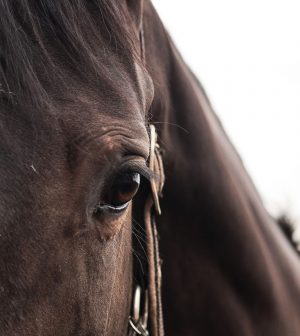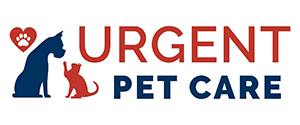- Do you subscribe to Dharma Dog Training’s Newsletter? You should.
- A Unique Campaign from The Humane Society of the United States
- Rabid bats in Omaha- Stay safe, prepared with these tips
- Springtime Activities in Omaha
- Mill Dog Monthly from Bailing Out Benji
- World Spay Day, Legislative Alert in Nebraska
- Attend the Nebraska Rescue Council’s monthly meeting this Saturday
- Five Hard-to-Ignore Reasons to Adopt!
- Paws in Pink to Benefit Breast Cancer Foundation
- VCA, Inc. Acquires MidWest Vet Specialists from Kansas State University
4 Signs Your Equine Isn’t Feeling Well

Every pet parent is obliged to take good care of their pet. This doesn’t exempt horse owners, who should be able to judge and choose practical ways to keep their horses in good health. To achieve this, it’s crucial to learn basic knowledge about equine health and identify any signs of illnesses. While it’s important to recognize illness signs in your equine, it’s equally important to have veterinarian contacts at hand so you can contact them in case of an emergency. New equine owners may not know what signs to look out for. Fortunately, this article is here to help you know some common signs of a sick equine.
- Lack Of Appetite
If your equine experiences a sudden loss of appetite, it could be a sign of illness, injury pain, dental issues, mouth or stomach sores, or a new type of feed. If the equine loses appetite after a trailer transport, it could be due to stress and anxiety. Equines that don’t often ride on trailers may experience these issues, so whenever transporting your horse, ensure to keep them comfortable to avoid issues related to trailers.
Additionally, lack of appetite could signify a gastrointestinal issue called colic, a leading cause of death in horses. Colic can be caused by a combination of stress and dehydration, intestinal contractions, twisted intestines, infections, and pregnancy, among others. When your horse has colic, it seems restless, rolls on the ground, or kicks its abdomen.
Lack of appetite can also signify abrasions or inflammation in the esophagus, which makes swallowing difficult. Overworking or overtraining your horse can also cause a lack of appetite. With all these possibilities, you should contact your veterinarian to check up on your horse before the issues worsen.
- Weight Loss
Weight loss in equines occurs when the body uses more calories than those consumed. In horses, chronic weight loss can signify many things. For instance, weight loss can signify your horse is starving or eating poor-quality feeds. Additionally, weight loss can signify several health issues, from dental issues to parasite infestation. Dental issues are the major cause of equine weight loss. Signs of dental issues in equines are facial swelling, bad breath, and dropping feed when chewing. If the equine can’t chew food properly, it’s unable to benefit from the nutrients in the feed.
Internal parasites such as worms can also lead to chronic weight loss in horses. The parasites compete with the equine’s body for proteins and nutrients. The parasites can also interfere with the equine’s digestive tract tissue, making it difficult for the horse to maintain its weight. What’s more, these parasites can become resistant to dewormers. Therefore, if you notice drastic weight loss in your horses, call a veterinarian to diagnose the horse so it can recover and gain weight.
- Diarrhea
Diarrhea is a common and normal condition in horses. It may signify a simple digestive upset after a change in diet or environment. However, excessive diarrhea can mean that your equine is sick. For instance, diarrhea can signify that your equine has internal infections such as salmonellosis.
Furthermore, internal parasites such as cyathostomes can cause damage to large intestine linings, thus leading to diarrhea. The condition can cause chronic illnesses, weight loss, and even death if the condition isn’t addressed.
Additionally, diarrhea can be caused by stress and depression associated with transporting a horse in hot conditions. What happens is that the stress causes inflammation of the colon, which leads to massive fluid loss and the formation of toxins and tissue poisons that damage the gut wall. This causes chronic diarrhea, which can be fatal if not treated. Other causes of diarrhea can be cancer, sand accumulation in the large intestines, or inflammatory bowel disease. Despite the cause, diarrhea could mean that your horse is seriously ill, and you should book an appointment with your veterinarian to counter the issues early.
- Fever
Your equine’s body temperature states a lot about its health. However, you can’t tell the temperature by just looking at it. Although you can observe signs such as sweating or increased breathing rate, these signs aren’t always there. Therefore, you have to measure your horse’s temperature regularly to ascertain whether it has a fever. The normal temperature for an adult horse range between 99 to 101 degrees. If the temperature is more than 101, it’s classified as fever. Fever in horses can signify that the horse has an infectious or respiratory disease. Therefore, consult your vet if your equine’s temperature is higher than normal.
Conclusion
Just like other living things, horses need love and care. Therefore, as a horse owner, it’s your duty to ensure your horse stays healthy. When you observe the above signs, consult your veterinarian immediately to help manage the condition before it worsens.
Latest News
-
How to Make Your Rescue Pet as Comfortable as Possible
Did you bring home a new pet from a shelter...
- Posted 2 weeks ago
- 0
-
How Having A Pet Can Change Your Life
Having a pet can open your heart in ways that...
- Posted 6 months ago
- 0
-
How To Improve The Life Of Your Senior Pet
Do you have an elderly fur baby and want to...
- Posted 6 months ago
- 0
-
Springtime Activities To Enjoy With Your Furry Friends
Are you preparing for warmer weather and want some ideas...
- Posted 7 months ago
- 0
-
Pros And Cons Of Microchipping Your Pets
Have you considered whether your pets should be microchipped and...
- Posted 8 months ago
- 0
-
The Best New Fun Toys For Dogs And Cats
The Best New Fun Toys For Dogs And Cats Did...
- Posted 9 months ago
- 0
-
Heartfelt Ways To Show Your Pet You Love Them
Did you know there are more ways to show your...
- Posted 9 months ago
- 0

















You must be logged in to post a comment Login